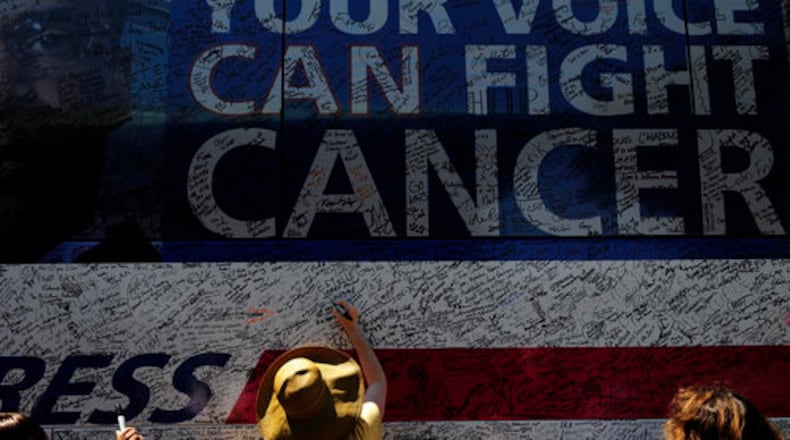The COVID-19 pandemic has been devastating for every sector of the economy, bringing challenges like most of us have never experienced in our lifetimes. And the virus shows no signs of imminent abatement as we move into 2021, with states across the nation reporting record-high virus outbreaks, hospitalizations and deaths. Nonprofits are working around the clock to meet the increasing needs of vulnerable communities and deliver on our missions.
Credit: contributed
Credit: contributed
At the American Cancer Society, we are hearing from cancer patients about how the pandemic has impacted them. With hospitals, doctors and front-line medical personnel overwhelmed with virus cases, cancer patients’ surgeries and treatments, such as chemotherapy and radiation, as well as routine cancer screenings and care, have been postponed. The continued delays that cancer patients and survivors are experiencing are deeply concerning.
The ongoing spread of the virus threatens to upend critical treatment schedules and delay preventive and diagnostic services, which could result in more late-term diagnoses and poorer cancer outcomes for years to come. An early study from the National Cancer Institute suggests almost 10,000 excess deaths from breast and colorectal cancer over the next decade due to disruptions in cancer screening and treatment. In Atlanta and throughout Georgia, many hospitals report they are seeing increasing numbers of COVID-19 patients and already nearing capacity as a third wave of the pandemic hits.
Credit: John Overmyer/NewsArt
Credit: John Overmyer/NewsArt
A recent survey by our advocacy affiliate, the American Cancer Society Cancer Action Network (ACS CAN), shows the significant effects the pandemic is currently having and will continue to have on cancer care.
- More than a quarter (26%) of cancer patients and survivors reported delays in their cancer-related care because of coronavirus
- When looking at respondents in active treatment for their cancer, the number increased to nearly one in three (32%). This included 21% of patients in active treatment who reported a delayed or canceled check-up or follow-up appointment specific to their cancer care
- The survey also found 45% of respondents are worried if COVID-19 cases continue to rise, the effect on the health care system will make it harder for them to access their cancer care. Some 64% of all respondents, and 74% of those in active treatment, said they were worried about their ability to stay safe if COVID-19 cases continue to increase.
A previous survey found the pandemic’s economic impact is also affecting many cancer patients and survivors.
- 46% percent said the pandemic had impacted their financial situation and ability to pay for care in some way,
- Nearly a quarter (23%) worry they may lose their health insurance due to the pandemic and its effects on the economy.
- 54% of cancer patients and survivors whose annual household income is $30,000 or less are worried that the financial impact of the pandemic will make it hard for them to afford the care they need.
The American Cancer Society is committed to continuing to serve and support cancer patients and survivors. While safety concerns have forced the suspension of our in-person events, our National Cancer Information Center (NCIC) is staffed 24/7 to answer questions from patients, survivors and their loved ones and offer health insurance assistance for those coping with financial strains or loss of coverage.
The American Cancer Society also offers ongoing online and video support groups and other patient services. To ensure that cancer prevention and early detection remain a public health priority, ACS is partnering with other national organizations on a coordinated effort to support returning to screening safely. Guidance for health systems is available at https://www.acs4ccc.org/acs-guidance-on-cancer-screening-during-covid-19/.
ACS CAN is also continuing its advocacy efforts, encouraging Congress and the administration to pass policies that help patients. This includes improving and expanding access to health coverage, increasing cancer research funding – including funding to restart clinical trials stalled by the pandemic – and supporting nonprofits so they can help those in need during this difficult time. Cancer patients need us, and we will not let them down!
Gary M. Reedy is CEO of the Atlanta-based American Cancer Society and American Cancer Society Cancer Action Network. For information on cancer 24/7, call 800-227-2345 or visit cancer.org.
About the Author
Keep Reading
The Latest
Featured



